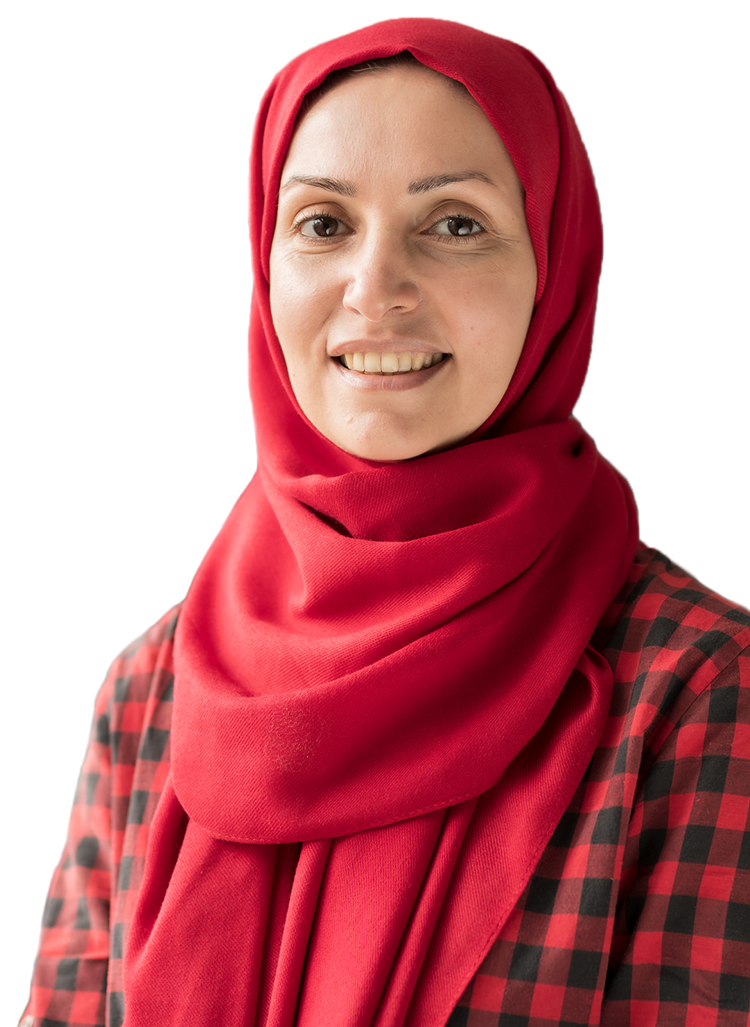Member Profiles
From molecules to motherhood, there’s no stopping Mina
Have you ever combined things to create something dynamic and positive?
Photochemical upconversion involves taking low energy photons of infrared light and upgrading them to create a higher energy photon of visible light, the type we can use in solar panels. It’s an exciting potential route to surpassing the efficiency limits of conventional renewable energy technology.
Dr Mina Barzegaramiriolya is one of the Exciton Science experts tasked with progressing this emerging photovoltaics technique.
She’s also adept at combing two very different roles to great effect, but there’s nothing low energy about the University of Melbourne Research Fellow.
Working alongside Associate Professor Wallace Wong and collaborating with Professor Tim Schmidt at UNSW Sydney, Mina is seeking to improve the quantum yield of violanthrone, a molecule that could hold the key to practical implementation of upconversion.
That may sound challenging enough for most of us, but as a mother of two children, Mina can’t switch off when she leaves the laboratory.
“I always say that my second job starts in the afternoon when I get back home, because I should keep my energy to play with my kids, to take care of them,” she said.
“But I really enjoy that. That's something that I choose and I'm really happy with that.”
Although balancing complicated chemistry with raising a young family is logistically complex, it’s a relief for Mina to be back at work following the challenges posed by the pandemic.
“During COVID it was very difficult, because I had to work at home,” she said.
“There was not much that I could do at home. We are experimentalists, we need the lab to do something.
“I took advantage of staying at home to write a review and also some drafts of a paper that wasn't really ready.
“But it was really challenging, because you have your kids and they find you everywhere that you're hiding.”
On the toughest days at work, it’s Mina’s love for science and the discovery of new knowledge that keeps her going.
“I was always keen to stay in academia and to continue as a researcher,” she said.
“I love research. I chose being a researcher, because it was always my passion.”
Mina identified a PhD as a goal relatively early in her studies, but learning and working in Australia was not a foregone conclusion. After completing a Master’s in her native Iran, she faced a life-changing decision.
“First of all, the reason that I chose to do a PhD, it was the thing that I always wanted,” she said.
“Either in my home country or outside of my own country, I always wanted to do PhD in my field. It's something that I actually decided when I first started my undergrad.
“I was offered a position to do a PhD in my home country. And then at that time I met my husband. He is also a chemist. He finished his Master’s three years ahead of me. And he was also interested to go to another country to do his PhD, but we hadn’t decided yet.
“I was not really sure if I wanted to do that, because it's a very big step for us to take. Maybe alone I wouldn't have done that, if he was not with me in this. He raised this [idea], I agreed and we both came here for our PhDs.
“I always said that this is the right decision. I'm really happy.”
Being far from home can be difficult, but Mina is grateful for the support she has received from those closest to her in making the dream of studying and working overseas a reality.
“The most difficult part was to say goodbye to your family,” she said.
“But our family, both sides, were very supportive and they actually pushed us to go. And they come here to visit us, so it was fine.
“My mother-in-law and my father-in-law came to Australia when I had my first son, which is about five years ago now. They stayed here to help us to raise my kid, because I was working at that time as well.
“My parents came here when I had my second and they're still with us because they were stuck due to COVID and now they're still with us taking care of the kids.”
There’s also a professional family on hand to support Mina, who is delighted with the ease of collaboration pathways found in a Centre of Excellence.
“Exciton Science is awesome,” she said.
“The environment that’s provided for researcher, I think it's very good. You have everyone around and because you are meeting regularly, then you have got the chance to talk to different type of people, different research groups in different places in Australia.
“Everyone knows what you're doing and that's why they can trust you.”
I love research. I chose being a researcher, because it was always my passion.”

Mina Barzegaramiriolya
Exciton Science Research Fellow
University of Melbourne